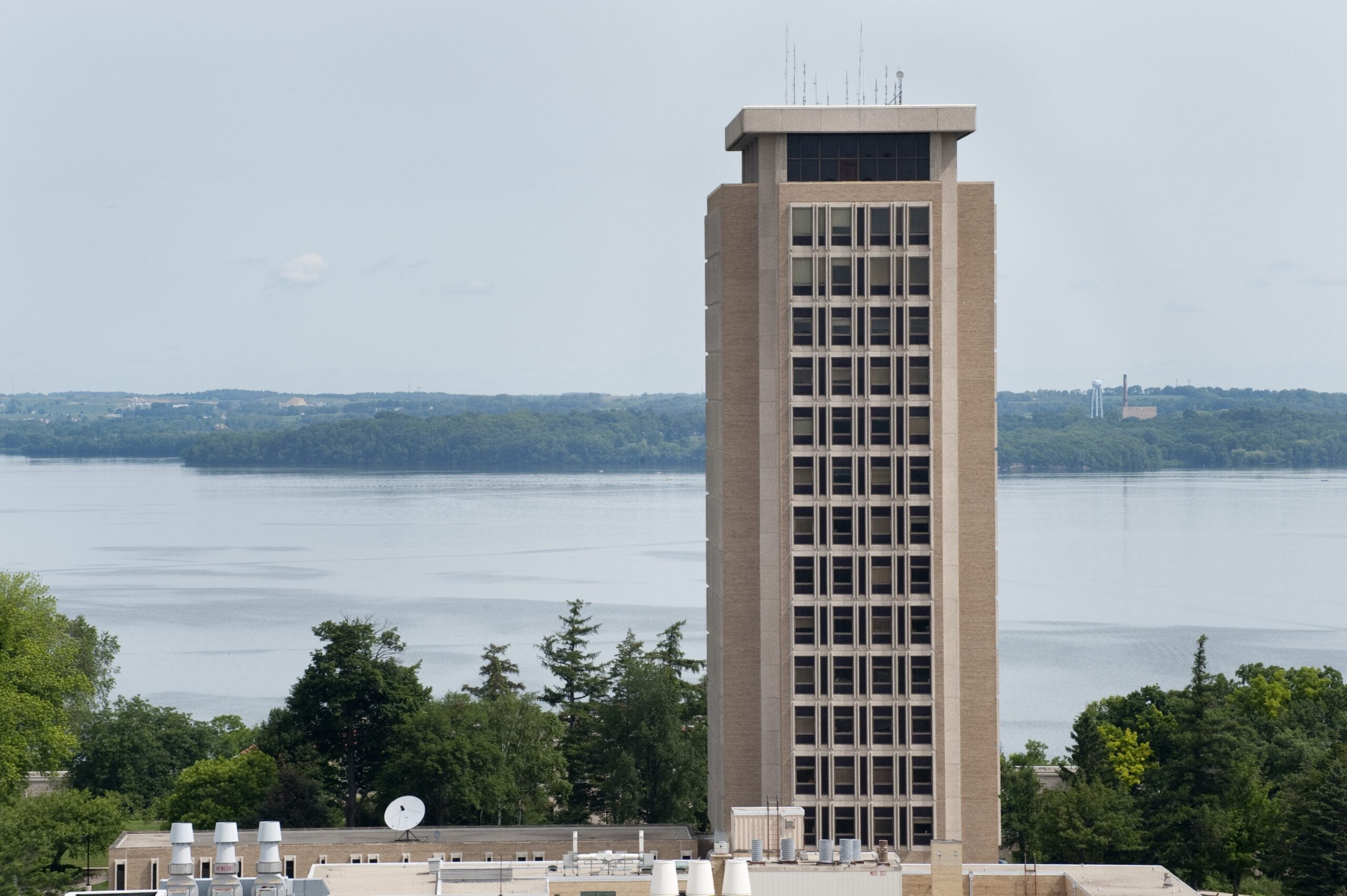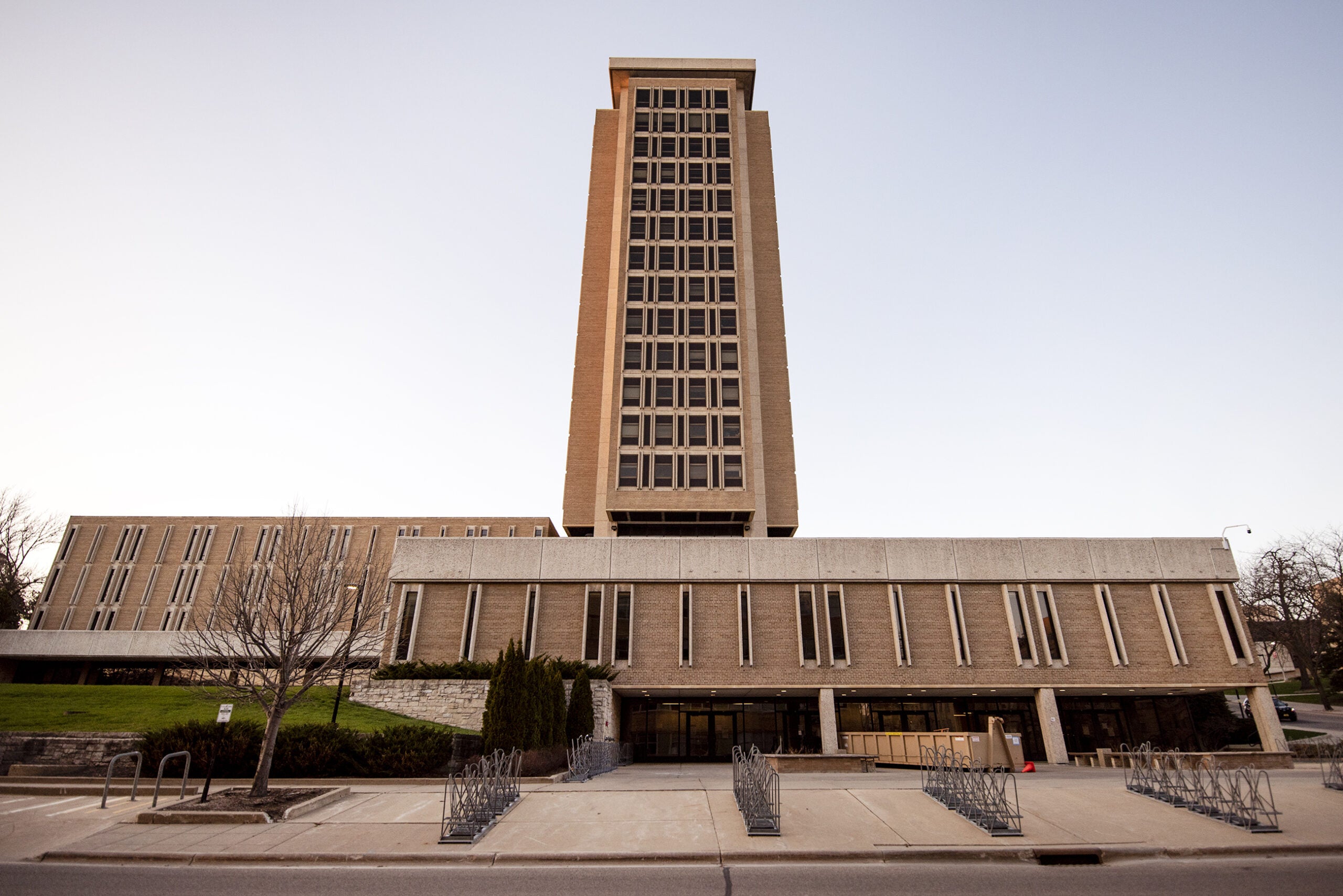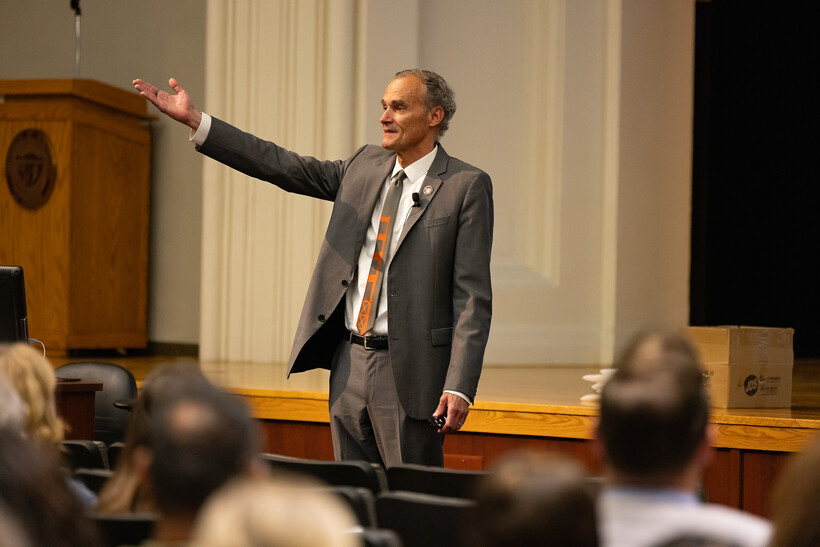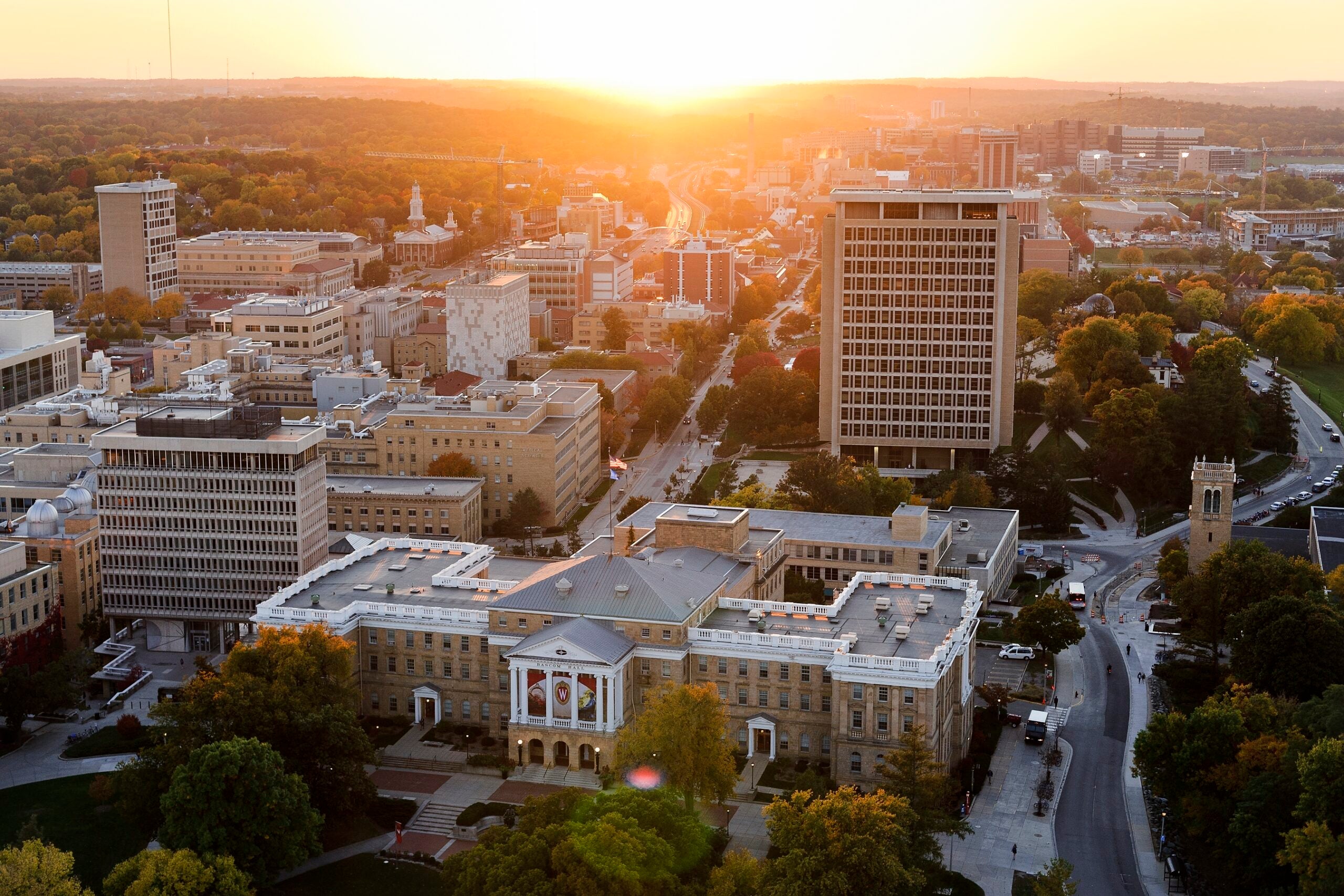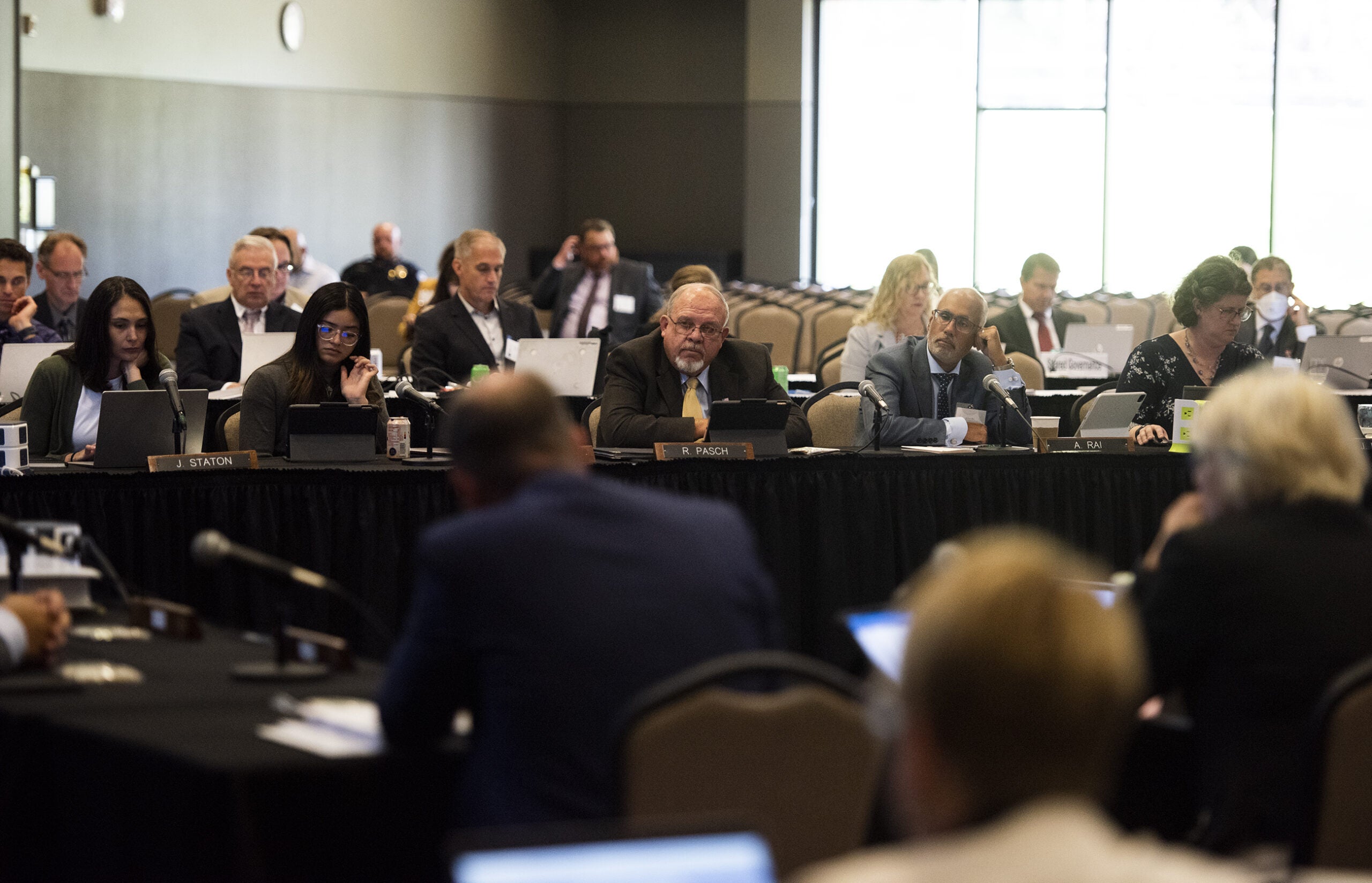Gov. Tony Evers will have the option of appointing three members to the University of Wisconsin System Board of Regents on May 1. If the positions are filled, it would mark a shift in the board’s majority. Between 2015 and February of this year, Walker appointees made up the bulk of the policy setting board.
As it stands now, the board is split with eight members who were appointed by Walker and eight appointed by Evers. The other two members are seated automatically due to their roles as president of the Wisconsin Technical College System Board and state superintendent of schools.
WPR asked a communications official with Evers’ office when he may name new appointees to the board, but didn’t receive a response before publication.
Stay informed on the latest news
Sign up for WPR’s email newsletter.
For the last six years, Walker appointees dominated the Board of Regents and moved to change policies related to punishments for students disrupting free speech events, allowing people with no academic backgrounds to be hired as chancellors at system campuses and changes to tenure.
Those policies, in particular, were seen as controversial by some employee and student groups, but were passed nearly unanimously. Evers, who sat on the board at the time as state superintendent of schools, cast the only no vote in two of the three instances.
But UW-Platteville chemistry professor and regent faculty representative Chuck Cornett said just because there will be a shift in which governor has more appointees on the board doesn’t mean there will be major changes in policy.
“I think what we’re looking at here is a change will occur, and it will be more of a philosophical change that drives the arguments such as they are,” said Cornett. “I think that it’s perhaps amiss to think that it’s going to have a big outcome, like many people would expect in a politically charged environment that we live in these days.”
Cornett said most regents he’s interacted with learn a lot about UW System when they join the board, which influences how they advocate for students and employees.
“And one of the amazing things that happens almost all the time is they fall in love with UW System in a way they never predict and no one else could ever predict,” said Cornett.
While he doesn’t expect any sudden shifts, Cornett said having a mix of individuals appointed by two prior governors could lead to fewer unanimous votes.
UW-Stevens Point professor and faculty representative Nerissa Nelson said the hope is that any new regents appointed to the board will consult more with campuses than in previous years, build consensus as they develop policies and uphold the Wisconsin Idea.
UW-Eau Claire political science professor, Geoff Peterseon, has been a campus representative to the Board of Regents for more than a decade. He, too, said any changes will likely be slight.
“As I keep telling my colleagues here on campus, this isn’t going to suddenly be all unicorns and rainbows,” said Peterson.
He said while regents do set policy for the UW System to follow, much of the daily aspects in a professor, staff or student’s daily life are out of the board’s hands.
“They can’t suddenly put tenure back into law like we used to have,” Peterson said.
Both Peterson and Cornett said the newly composed board might put more emphasis on expanding diversity and inclusion efforts within the system, though Cornett noted current regent President Drew Petersen and Vice President Michael Grebe have moved campuses in the right direction.
Any new appointees to the Board of Regents by Evers could impact an upcoming election of a new regent president. During the board’s last meeting, regents discussed a potential “contested election” for the top spot. Traditionally, regent vice presidents have ascended to the president’s seat.
Editor’s note: Wisconsin Public Radio is a service of the University of Wisconsin-Madison and the Wisconsin Educational Communications Board. This story has been updated to clarify the dates Gov. Scott Walker appointees made up the board’s majority.
Wisconsin Public Radio, © Copyright 2024, Board of Regents of the University of Wisconsin System and Wisconsin Educational Communications Board.

